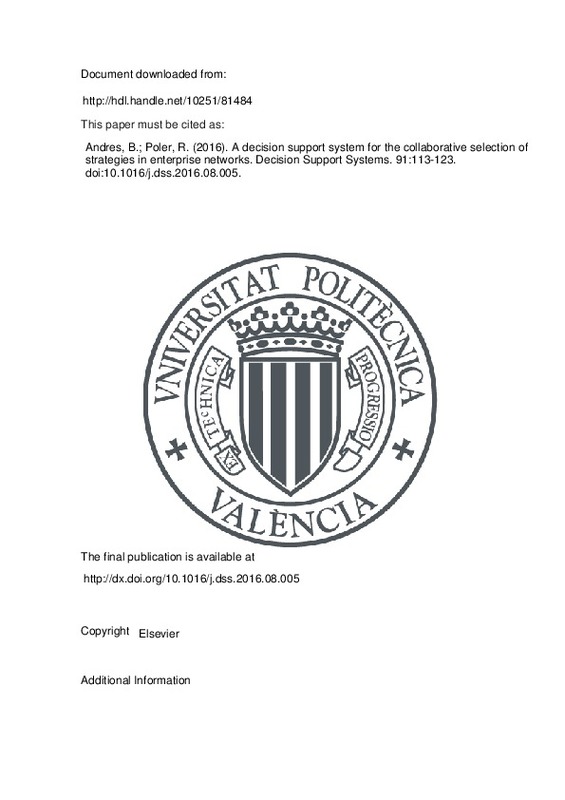JavaScript is disabled for your browser. Some features of this site may not work without it.
Buscar en RiuNet
Listar
Mi cuenta
Estadísticas
Ayuda RiuNet
Admin. UPV
Desde el lunes 3 y hasta el jueves 20 de marzo, RiuNet funcionará en modo de solo lectura a causa de su actualización a una nueva versión.
A decision support system for the collaborative selection of strategies in enterprise networks
Mostrar el registro completo del ítem
Andres, B.; Poler, R. (2016). A decision support system for the collaborative selection of strategies in enterprise networks. Decision Support Systems. 91:113-123. doi:10.1016/j.dss.2016.08.005
Por favor, use este identificador para citar o enlazar este ítem: http://hdl.handle.net/10251/81484
Ficheros en el ítem
Metadatos del ítem
| Título: | A decision support system for the collaborative selection of strategies in enterprise networks | |
| Autor: | ||
| Entidad UPV: |
|
|
| Fecha difusión: |
|
|
| Resumen: |
Collaborative networks (CN) consist of autonomous and heterogeneous partners, and each defines its own objectives and formulates its own strategies, which are selected and activated to achieve these objectives. The ...[+]
|
|
| Palabras clave: |
|
|
| Derechos de uso: | Reserva de todos los derechos | |
| Fuente: |
|
|
| DOI: |
|
|
| Editorial: |
|
|
| Versión del editor: | http://dx.doi.org/10.1016/j.dss.2016.08.005 | |
| Tipo: |
|







![[Cerrado]](/themes/UPV/images/candado.png)


